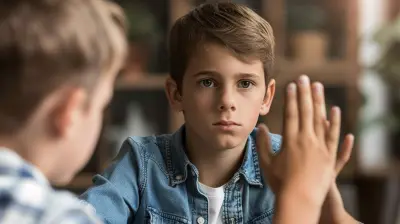Using Storytelling to Instill a Sense of Thankfulness in Children
26 July 2025
Gratitude is one of those golden traits we all hope to nurture in our kids. We want them to grow up appreciating what they have, recognizing the kindness of others, and saying "thank you" not just out of habit, but from the heart. But let’s be real—getting kids to grasp these big emotions isn't always a walk in the park.
That’s where storytelling swoops in like a parenting superhero. Stories have this amazing power to sneak life lessons into a child's mind without sounding preachy. So, if you're wondering how to raise thankful children in a world full of instant gratification and "more, more, more," you're in the right place.
In this post, we’re diving into how you can use storytelling to build a lasting sense of thankfulness in your child—one bedtime tale at a time.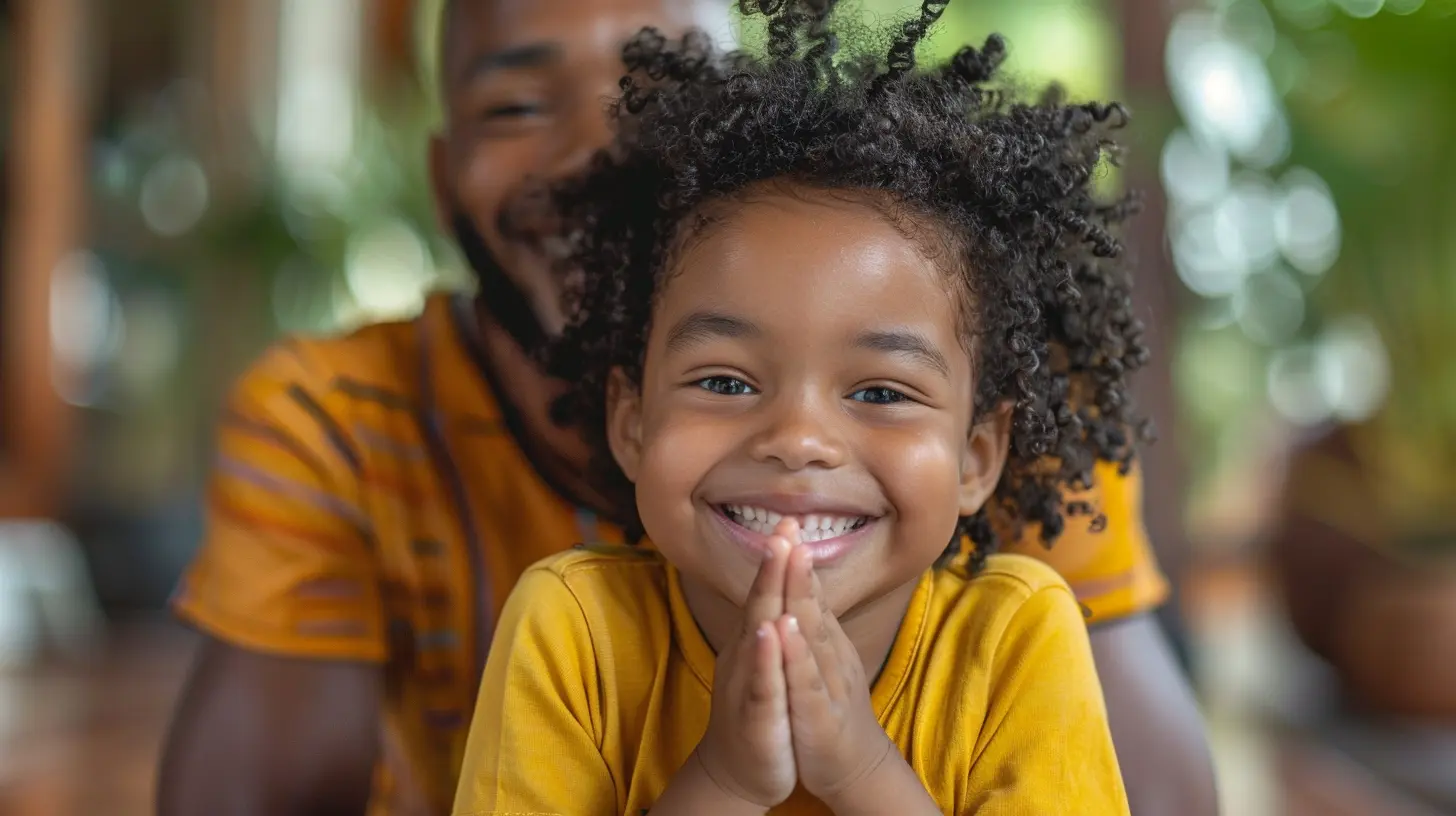
Why Gratitude Matters in Childhood Development
Before we get into the power of stories, let’s hit pause and talk about why thankfulness is so important.Grateful kids tend to be happier, healthier, and more resilient. Studies show that kids who practice gratitude have:
- Better relationships
- Stronger empathy
- Reduced stress and anxiety
- Higher self-esteem
And here’s the kicker—gratitude isn’t just a fuzzy, feel-good emotion. It’s a skill. One that needs to be taught, practiced, and encouraged. Think of it like planting seeds. With the right care, those seeds bloom into a mindset that can shape a child’s entire life.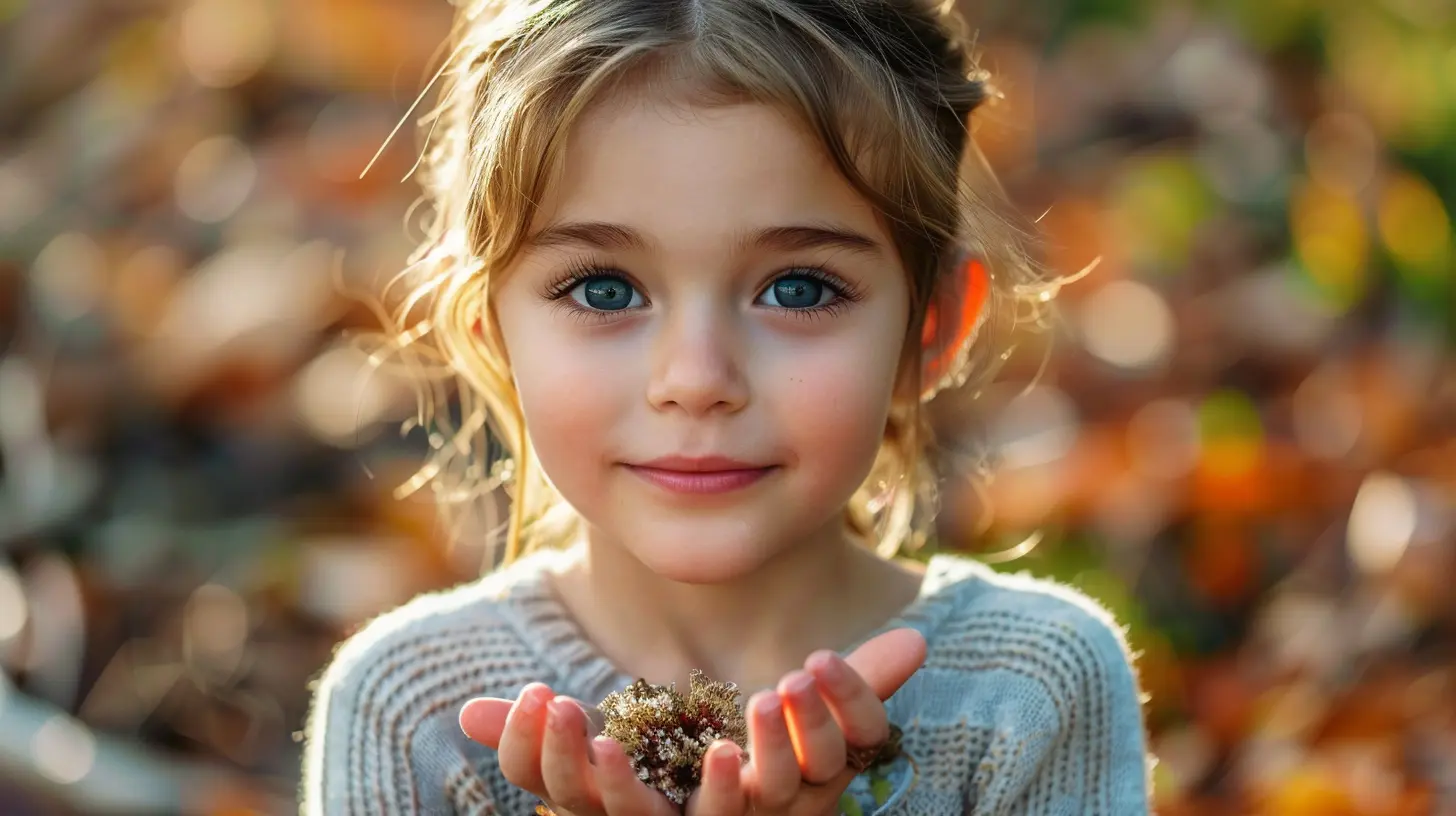
Storytelling: More Than Just Entertainment
Sure, bedtime stories can help kids drift off to sleep. But they can also help them make sense of the world, understand others, and build real emotional intelligence.When kids hear or read stories, they’re not just passively listening—they’re connecting, imagining, and feeling. Stories offer a safe space to explore emotions and consequences without real-world risks. And best of all? They stick. A well-told tale embeds itself in a child’s heart and mind in ways a lecture never will.
So, when you wrap a gratitude lesson in the form of a story, it’s like hiding veggies in a smoothie—it just goes down easier.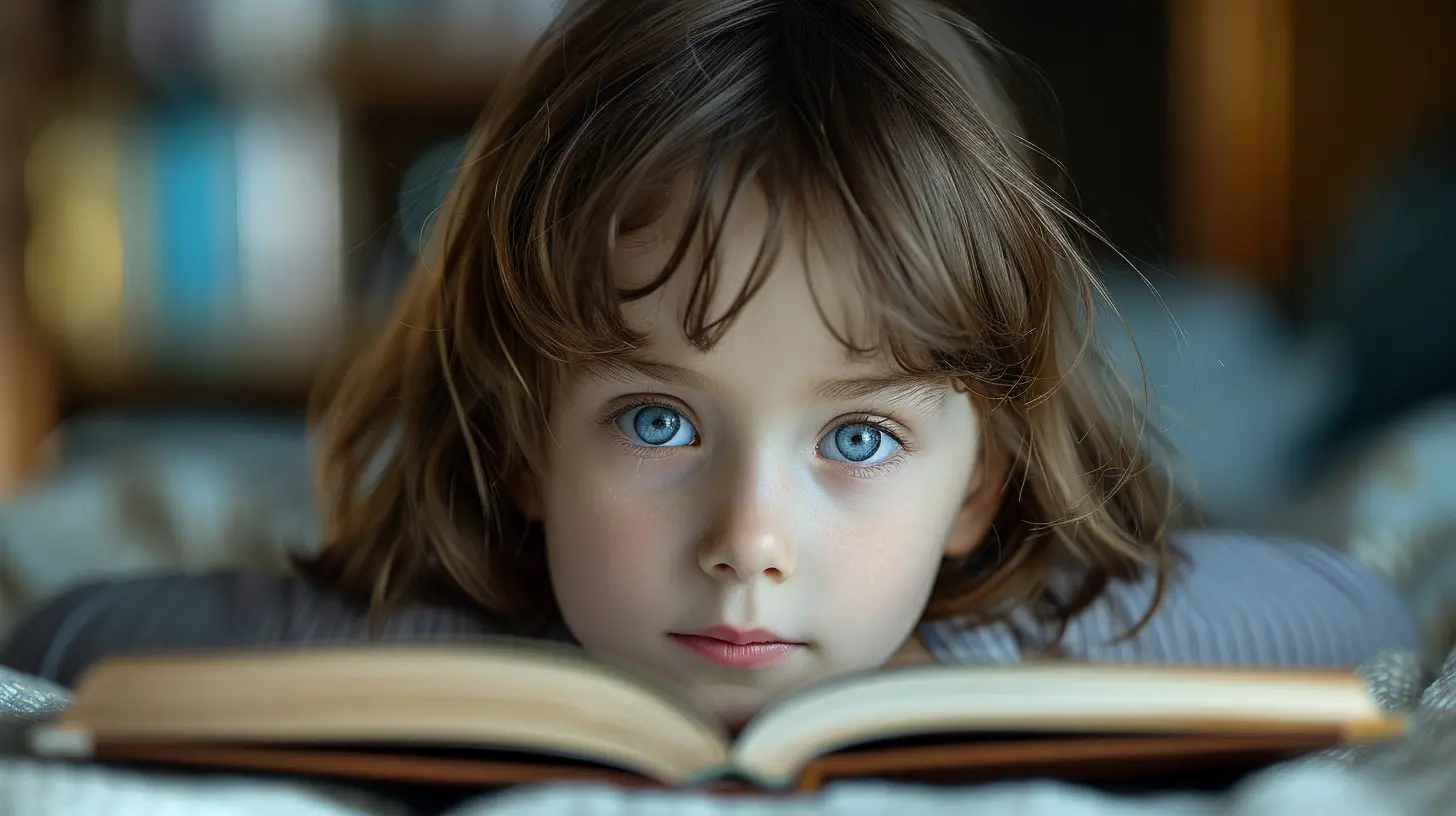
How Storytelling Teaches Gratitude
1. Creates Relatable Characters
Characters are the emotional gateway of any story. When a child sees a character who struggles, grows, or learns a lesson, they mirror those feelings.Let’s say your story is about a little squirrel who complains all the time—until he realizes the other animals have far less. Suddenly, your child sees through new eyes. His whiny behavior begins to feel... not so great. And the squirrel’s newfound appreciation? That’s the emotional takeaway.
2. Shows Consequences
Remember the fable of "The Boy Who Cried Wolf?" That story doesn’t just entertain—it teaches consequences. The same goes for gratitude-centric stories.Include scenarios in your stories where characters face the results of being ungrateful. Maybe a child ignores their grandmother’s handmade gift and sees her feelings get hurt. These gentle nudges help kids make emotional connections without shame or blame.
3. Highlights the Small Stuff
In our fast-paced world, it’s easy to miss the everyday blessings. But storytelling can highlight the beauty in small things—a shared meal, a sunny day, a kind gesture.The more you spotlight these moments in your stories, the more your child will start to notice them in real life. They’ll begin to realize that happiness isn’t always about big things—it’s often found in the little ones.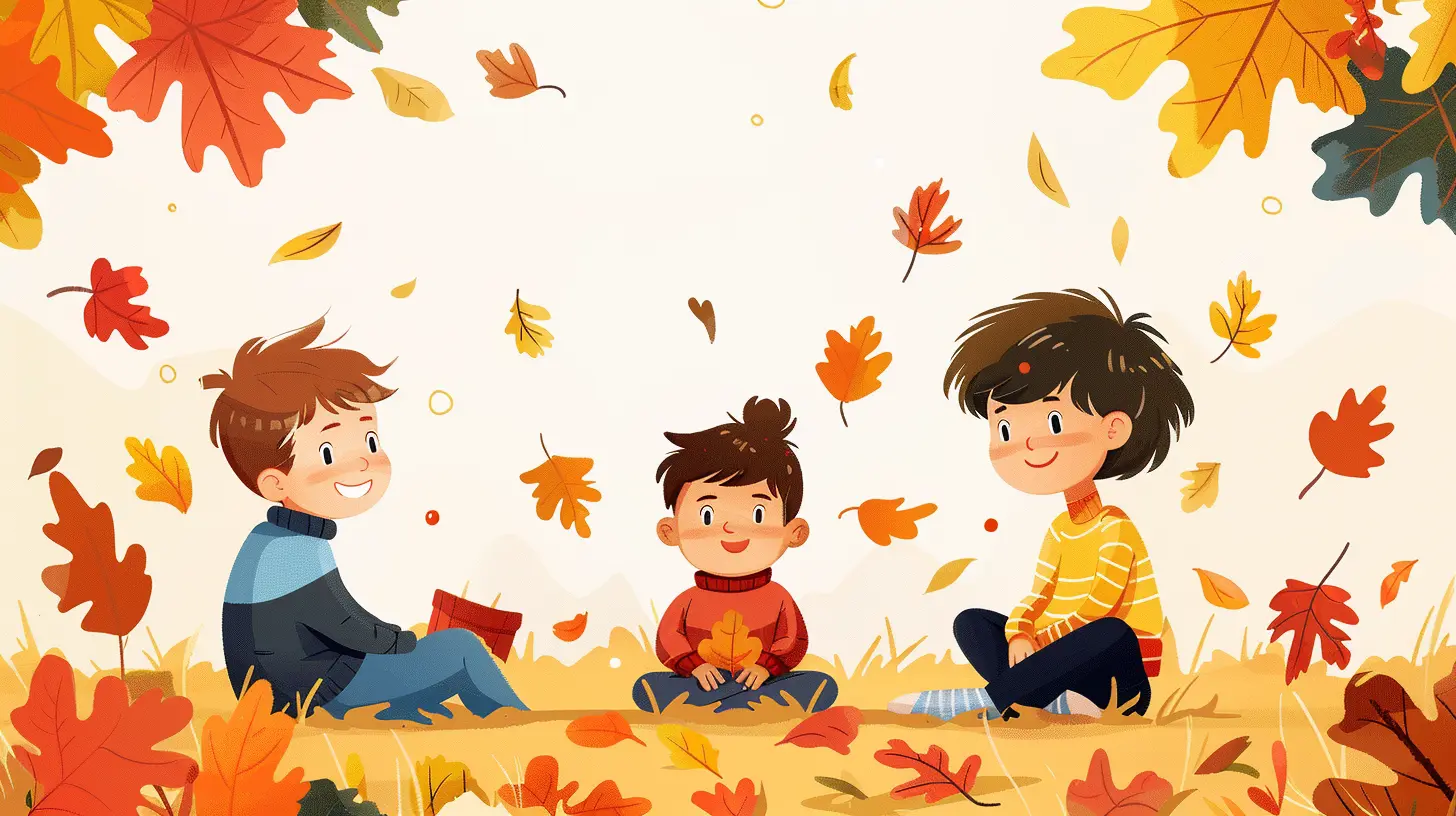
Tips for Creating Gratitude-Focused Stories
All right, now for the fun part—how to actually craft stories that work their magic.Keep It Simple and Short (Especially for Young Kids)
You don’t need to write a novel. Even a five-minute story at bedtime can do the trick. Keep the language easy and the plot straightforward.Make Your Child the Star
Kids love stories where they’re the main character. Personalize the story using your child’s name and let them go on a journey that teaches a lesson in thankfulness. It’s like giving them front-row seats to their own emotional development.Use Animals or Fantasy Creatures
Sometimes, it’s easier for kids to absorb messages when they’re told through animals or imaginary friends. A grumpy dragon learning to say thank you or a fox who discovers joy in sharing can deliver powerful lessons without sounding like a scolding.Include a Twist or Surprise
A good story doesn’t need to be boring or overly moralistic. Add a twist that makes your child laugh or sparks curiosity. Maybe a spoiled prince learns gratitude from a talking broomstick. Keep it fun, and the message will stick.End With a Question
Wrap up your story with something like, “What do you think you would’ve done?” or “Have you ever felt like that?” Blam! Now you’ve got them reflecting, and that’s golden.Real-Life Examples of Thankfulness Stories
Need a little inspiration? Here are some story ideas you could tell at bedtime or around the dinner table.“The Empty Toy Box”
Once there was a boy who had every toy imaginable but never felt satisfied. One morning, he wakes up to find his toy box completely empty. As he journeys through the town looking for his toys, he sees other kids playing joyfully with just sticks, stones, and their imagination. By the end of the story, he realizes happiness isn’t about how many toys you have—it’s about how you use them.“Ellie and the Wishing Tree”
Ellie wishes for more and more to be happy—new clothes, more friends, bigger parties. But each wish comes with a cost, and soon she sees she’s losing the things that truly mattered. A visit to the wise old Wishing Tree helps her reset her thinking and appreciate the beauty of what she already had.“Grandma’s Cookies”
A child visits Grandma and grumbles about the cookies being “too plain.” But when Grandma shares the story of making cookies during tough times with just flour and water, the child begins to see the cookies—and his grandma—in a whole new light.Each of these stories can easily be customized to suit your child's age, interests, and current challenges.
The Magic of Repetition
Don’t be afraid to repeat the same story. Kids love familiarity. And the more they hear those gratitude-filled messages, the more they absorb them. You’ll start noticing subtle shifts—like your child saying "thank you" more often or pointing out things they're grateful for.And guess what? That shift in your child might just shift your own perspective too.
Turn Story Moments Into Conversations
Stories shouldn't end at “The End.” Try gently nudging your child into a short chat afterward. Say something like:- “What would you have done if you were Ellie?”
- “Have you ever felt like the boy with the empty toy box?”
- “What are three things you’re thankful for today?”
This creates space for emotional growth. And it signals to your child that these aren't just stories—they’re life lessons in disguise.
Bonus: Where to Find Great Gratitude Stories
If crafting your own stories feels daunting, don’t stress—there are tons of amazing books out there that can help. Here are a few favorites:- The Giving Tree by Shel Silverstein
- Last Stop on Market Street by Matt de la Peña
- Thankful by Eileen Spinelli
- Bear Says Thanks by Karma Wilson
- The Thank You Book by Mo Willems
Add a few of these to your library rotation, and you’re golden.
Final Thought: It’s the Little Things
Teaching your kids gratitude doesn't have to involve grand gestures or complicated lessons. Sometimes, all it takes is a heartfelt story, a warm snuggle, and a few minutes of your time.When you use storytelling to instill thankfulness, you’re doing more than creating a bedtime ritual. You’re planting seeds of empathy, perspective, and joy. Over time, those seeds grow into a mindset that will help your child build stronger relationships and lead a richer, more grateful life.
So, next time your kiddo settles in for a story, go ahead—whip out a tale with a thankful twist. You’ll be amazed at the magic that unfolds.
all images in this post were generated using AI tools
Category:
Teaching GratitudeAuthor:

Max Shaffer
Discussion
rate this article
2 comments
Megan Gibson
Storytelling is a powerful tool for nurturing gratitude in children. By sharing stories that highlight generosity and appreciation, parents can inspire their kids to recognize the value of what they have and the kindness of others, fostering a lifelong sense of thankfulness.
November 27, 2025 at 3:54 AM
Faryn McVey
This article beautifully highlights the power of storytelling in cultivating gratitude. By weaving lessons of appreciation into narratives, we can nurture empathy and mindfulness in children, fostering a lifelong sense of thankfulness.
August 6, 2025 at 4:01 PM

Max Shaffer
Thank you for your insightful comment! I'm glad you found the article highlights the importance of storytelling in nurturing gratitude and empathy in children.


